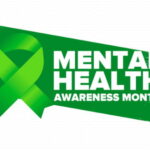How Mental Health Books Combined with Art Therapy Helps with Depression

“Books about the mind offer a unique perspective and understanding of the human experience.”
Dr. John M. Grohol
Reading books about mental health can be an incredibly powerful tool for helping with depression and anxiety. Combining the power of art therapy with books about mental health can be an even more powerful combination.
Mental health books provide insight into the struggles and solutions to mental health issues, while art therapy helps to express feelings that may be difficult to put into words.
Studies have shown that this combination of reading and drawing is especially effective in helping people cope with depression and anxiety. Reading books about mental health and using art therapy together is a great way to fight depression and anxiety.
The addition of online therapy makes along with art therapy and learning more about your depression and anxiety by reading mental health books empowers you over your thoughts.

Understanding the Importance of Mental Health Books
Mental health is a topic that affects many individuals, yet it is often surrounded by stigma and misconceptions. It can be a difficult subject to talk about openly, which is why books about mental health are such an important resource.
These books provide insight, guidance, and support for those struggling with mental health issues like depression and anxiety. They offer a window into the minds of individuals who have faced similar challenges, helping readers feel less alone in their struggles.
Finding the best mental health books is essential when seeking guidance and support. These books not only provide information about mental health conditions but also offer practical strategies and coping mechanisms to help navigate through the darkness.
They give readers the tools they need to understand their own minds and develop healthy coping mechanisms. From personal memoirs to scientific explanations, there is a wide range of books about the mind that cater to different interests and needs.
Reading mental health books allows individuals to gain a deeper understanding of their own emotions, thoughts, and behaviors. It helps them identify patterns and triggers, offering a roadmap for their healing journey.
By delving into the experiences of others, readers can gain perspective, validation, and hope. These books offer stories of resilience, recovery, and personal growth, inspiring readers to believe in their own ability to overcome challenges.
Furthermore, mental health books create a sense of community and connection. They bring together individuals who have struggled with similar issues, fostering empathy and understanding.
This shared experience can be incredibly comforting and validating, especially for those who may feel isolated or misunderstood. Through the pages of these books, readers can find solace, validation, and the knowledge that they are not alone.

Top 5 Mental Health Books for Adults
When it comes to finding the best mental health books for adults, there are countless options to choose from. These books offer a wealth of knowledge, support, and guidance for those navigating the complex terrain of mental health.
Whether you’re looking for personal memoirs, self-help guides, or scientific explanations, there is something out there for everyone.
One highly recommended book is “The Noonday Demon: An Atlas of Depression” by Andrew Solomon. This powerful memoir delves into Solomon’s personal experiences with depression and offers a comprehensive exploration of the condition. Through his eloquent storytelling, readers gain a deeper understanding of the complexities of depression and find solace in knowing they are not alone in their struggles.
Another must-read book is “Lost Connections: Uncovering the Real Causes of Depression – and the Unexpected Solutions” by Johann Hari. In this eye-opening exploration, Hari challenges the traditional understanding of depression and offers a fresh perspective on its underlying causes. Drawing on scientific research and personal anecdotes, he explores the social and environmental factors that contribute to depression and presents alternative solutions for recovery.
If you’re interested in understanding the power of the mind and how it affects mental health, “The Body Keeps the Score: Brain, Mind, and Body in the Healing of Trauma” by Bessel van der Kolk is a must-read. This groundbreaking book explores the relationship between trauma and mental health, shedding light on the importance of body-based therapies in healing. Van der Kolk combines scientific research with personal stories to provide readers with a comprehensive understanding of trauma and its impact on the mind and body.
For those looking for a practical guide to managing anxiety, “The Anxiety and Worry Workbook: The Cognitive Behavioral Solution” by David A. Clark and Aaron T. Beck is an excellent resource. This workbook offers evidence-based strategies and exercises that help individuals identify and challenge negative thoughts and behaviors associated with anxiety. Through the use of cognitive-behavioral techniques, readers can develop effective coping mechanisms and regain control over their anxious thoughts.
Lastly, “The Gifts of Imperfection: Let Go of Who You Think You’re Supposed to Be and Embrace Who You Are” by Brené Brown is a powerful book that encourages self-acceptance and self-compassion. Brown’s uplifting and relatable writing style offers valuable insights on embracing imperfection and cultivating a sense of belonging. With practical advice and personal anecdotes, this book helps readers develop a healthier mindset and find joy in their authentic selves.
These are just a few of the many incredible mental health books available to adults.

Quotes from Experts on the Benefits of Mental Health Books
As we delve deeper into the topic of mental health books and their impact on our well-being, it’s important to consider the insights and expertise of professionals in the field. Here are three quotes from experts that shed light on the benefits of reading books about the mind:
- Dr. John M. Grohol, founder of Psych Central, a leading mental health website, states, “Books about the mind offer a unique perspective and understanding of the human experience. They provide a platform for individuals to explore their own emotions, thoughts, and behaviors in a safe and non-judgmental way. By reading these books, individuals gain valuable insights that can help them navigate their own mental health challenges and develop effective coping strategies.”
- Dr. Sherry Benton, the founder and Chief Science Officer of TAO Connect, an online platform for mental health therapy, highlights the importance of mental health books as a resource for self-help and empowerment. She says, “Books about the mind provide individuals with a sense of control over their mental health. They offer practical tools and strategies that empower individuals to take charge of their well-being and actively participate in their healing journey. By reading these books, individuals become active agents in their mental health care.”
- Emily Roberts, a psychotherapist and author of several books on mental health, emphasizes the impact of mental health books on destigmatizing mental health conditions. She says, “Books about the mind play a crucial role in breaking down the stigma surrounding mental health. By sharing personal stories and experiences, these books normalize the struggles that many individuals face, encouraging open conversations and fostering empathy. They create a space for individuals to feel understood and supported, ultimately promoting a more compassionate and inclusive society.”
These quotes from experts in the field of mental health reinforce the significant impact that books about the mind can have on our well-being. They serve as a powerful tool for self-reflection, empowerment, and fostering understanding and empathy.
Whether you’re looking for practical strategies or personal stories of resilience, mental health books offer a wealth of knowledge and support that can make a meaningful difference in your journey towards mental well-being.

The Benefits of Art Therapy for Depression and Anxiety
Art therapy is a form of therapy that uses creative expression, such as drawing, painting, writing, and sculpting, as a means of exploring and processing emotions. When it comes to mental health, art therapy can be a powerful tool for individuals struggling with depression and anxiety.
There are several benefits of art therapy that make it a valuable addition to any mental health journey.
One of the main benefits of art therapy for depression and anxiety is its ability to help individuals express their emotions in a nonverbal way. Oftentimes, those experiencing depression or anxiety may find it difficult to put their feelings into words.
Art therapy provides a safe and nonjudgmental space for individuals to express themselves visually, allowing them to explore and release their emotions in a creative and therapeutic way.
Through the act of creating art, individuals can tap into their inner world and gain a deeper understanding of their emotions, which can be incredibly cathartic.
Another benefit of art therapy for depression and anxiety is its ability to promote mindfulness and relaxation. Engaging in creative activities can help individuals focus their attention on the present moment, allowing them to temporarily disconnect from their worries and anxieties.
This can be especially helpful for individuals with anxiety who may find it difficult to quiet their racing thoughts. By immersing themselves in the process of creating art, individuals can experience a sense of calm and peace.
Additionally, art therapy provides a sense of control and empowerment for individuals struggling with depression and anxiety. Engaging in the creative process allows individuals to make choices and take ownership of their art.
This can be incredibly empowering, as it reminds individuals that they have agency over their own lives and mental health. The act of creating something tangible can also provide a sense of accomplishment and boost self-esteem, which is especially important for those struggling with depression.
Overall, art therapy is a powerful tool for individuals with depression and anxiety. It provides a means of self-expression, promotes mindfulness and relaxation, and empowers individuals to take control of their mental health.
When combined with reading books about mental health, art therapy becomes even more effective, as it allows individuals to explore and process their emotions on a deeper level.
By incorporating both art therapy and reading into their mental health journey, individuals can enhance their coping mechanisms, gain valuable insights, and find hope and healing.

How Combining Art Therapy with Reading Can Help Improve Mental Health
Combining art therapy with reading books about mental health can have a profound impact on improving mental health, especially for those struggling with depression and anxiety.
The combination of these two therapeutic practices allows individuals to express and process their emotions on a deeper level, leading to increased self-awareness, coping skills, and a sense of empowerment.
Art therapy provides a creative outlet for individuals to visually express their thoughts and emotions, which can be particularly helpful for those who find it difficult to articulate their feelings in words.
Through painting, drawing, or sculpting, individuals can explore their inner world and tap into emotions that may have been buried or ignored. This process of creative expression can be incredibly helpful and can help individuals gain a better understanding of their own thoughts and experiences.
Reading books about mental health adds an additional layer of insight and guidance to the healing process. These books provide valuable information about mental health conditions, as well as practical strategies and coping mechanisms to navigate through the darkness.
By reading personal memoirs and scientific explanations, individuals can gain perspective, validation, and hope. The stories of resilience and personal growth shared in these books inspire readers to believe in their own ability to overcome challenges.
When art therapy and reading are combined, individuals can engage in a multi-faceted approach to their healing journey. Creating art helps individuals access and process their emotions, while reading mental health books provides guidance and support.
The act of reading allows individuals to gain a deeper understanding of their own emotions, thoughts, and behaviors, helping them identify patterns and triggers. This combination of self-expression and self-reflection creates a powerful synergy that can lead to profound personal growth and healing.
Furthermore, this combination of art therapy and reading creates a holistic approach to mental health. Art therapy engages the creative and emotional parts of the brain, while reading stimulates cognitive processes and intellectual understanding.
By engaging both sides of the brain, individuals can access different ways of processing information and gain a more comprehensive understanding of their own mental health.
This holistic approach can lead to increased self-awareness, emotional regulation, and overall well-being.

The Benefits of Online Therapy for Mental Health
Online therapy, also known as teletherapy or virtual therapy, has become increasingly popular in recent years, and for good reason. This innovative approach to mental health treatment offers numerous benefits that make it an attractive option for individuals struggling with depression and anxiety.
One of the main advantages of online therapy is its convenience and accessibility. With online therapy, you can access professional help from the comfort of your own home, eliminating the need for travel or scheduling conflicts.
This is especially beneficial for those who live in remote areas or have limited access to mental health services. Online therapy also allows for greater flexibility in scheduling appointments, making it easier to fit therapy into your busy life.
Another benefit of online therapy is the increased sense of privacy and anonymity it provides. For some individuals, the thought of going to a traditional therapy office and being seen by others can be intimidating and may deter them from seeking help.
With online therapy, you can have sessions from the privacy of your own space, whether that’s your bedroom, living room, or even a quiet corner in a coffee shop. This sense of privacy can create a more comfortable and relaxed environment, allowing you to open up and share more freely.
Additionally, online therapy often offers a greater variety of therapeutic approaches and techniques. While traditional therapy typically focuses on talk therapy, online therapy platforms often incorporate different modalities such as cognitive-behavioral therapy (CBT), mindfulness-based therapy, and art therapy.
This allows you to explore different therapeutic methods and find the approach that works best for you. You can also have access to a wider range of therapists with specialized expertise, ensuring that you find the right match for your specific needs.
One of the key benefits of online therapy, particularly in the context of combining it with reading mental health books, is the ability to continue therapy outside of scheduled sessions.
Online therapy platforms often provide resources and tools for self-reflection and self-guided therapy, such as worksheets, journal prompts, and recommended reading materials.
This allows you to continue your healing journey between sessions and integrate the insights and strategies you gain from reading mental health books into your therapy process.
We Offer a 20% discount with our Online Therapy partner.

The Synergy Between Mental Health Books and Online Therapy
When it comes to tackling depression and anxiety, the combination of mental health books and online therapy is a powerful duo.
Mental health books offer insights, guidance, and strategies for navigating the complexities of our minds, while online therapy provides a safe and convenient space to explore and address our mental health concerns. Together, they create a synergy that can lead to profound healing and growth.
By reading mental health books, we gain a deeper understanding of our own emotions, thoughts, and behaviors. We can identify patterns, triggers, and unhealthy coping mechanisms that may be contributing to our struggles.
These books offer a wealth of knowledge and practical advice that empower us to take an active role in our mental health care. They provide a roadmap for our healing journey, offering stories of resilience, recovery, and personal growth that inspire us to believe in our own ability to overcome challenges.
However, reading alone may not be enough. Online therapy complements the insights gained from mental health books by providing a space to delve deeper into our emotions and work through them with the help of a trained professional.
Online therapy platforms often offer a variety of therapeutic approaches and techniques, allowing us to explore different modalities and find the one that resonates with us.
With the convenience of virtual sessions, we can engage in therapy from the comfort of our own homes, making it easier to prioritize our mental health and fit therapy into our busy lives.
One of the key benefits of combining mental health books with online therapy is the ability to continue therapy outside of scheduled sessions. Many online therapy platforms provide resources and tools for self-reflection and self-guided therapy, such as worksheets, journal prompts, and recommended reading materials.
This integration allows us to deepen our healing process, incorporating the insights and strategies gained from reading into our therapy journey.
The synergy between mental health books and online therapy creates a holistic approach to mental well-being. Through reading, we gain knowledge and perspective, while online therapy provides a safe and supportive space for introspection and growth.
Together, they empower us to navigate our mental health challenges, develop healthy coping mechanisms, and find hope and healing along the way. So, if you’re struggling with depression and anxiety, consider combining the power of mental health books with the convenience and effectiveness of online therapy.
You deserve to embark on a journey towards better mental well-being, and this combination may just be the key to unlocking your potential.

Final Thoughts
As we reach the end of this article, it’s important to reflect on the power and potential that comes from combining art therapy with reading books about mental health. Depression and anxiety can be overwhelming and isolating, but these two practices offer a lifeline of hope and healing.
Mental health books provide valuable insights, guidance, and support for those struggling with their mental well-being. They offer a window into the experiences of others, helping us feel less alone in our struggles.
Through personal stories, scientific explanations, and practical strategies, these books empower us to navigate the complexities of our minds and develop healthy coping mechanisms. They remind us that we have the strength within ourselves to overcome the challenges we face.
Art therapy, on the other hand, allows us to express our emotions in a nonverbal way. Sometimes, words fail to capture the depth and complexity of our feelings, but art gives us a creative outlet to explore and release them.
By engaging in the process of creating art, we tap into our inner world and gain a deeper understanding of ourselves. It can be a helpful and transformative experience that helps us find solace and healing.
When combined, art therapy and reading books about mental health create a powerful synergy that enhances our mental well-being. Reading allows us to gain insights and knowledge, while art therapy provides a means of expression and processing.
By engaging both sides of our brain, we access different ways of understanding and healing. This holistic approach empowers us to take an active role in our mental health care and promotes personal growth and resilience.
In addition to these two practices, online therapy offers convenience, accessibility, and a safe space for exploration. It provides the opportunity to dive deeper into our emotions with the guidance of a trained professional.
By combining online therapy with art therapy and reading, we have a comprehensive toolkit for our mental well-being. We can explore our thoughts and emotions, gain valuable insights, and develop effective coping mechanisms.
Remember, you are not alone in your struggles.
There is support, guidance, and healing available to you. Consider incorporating art therapy, reading mental health books, and online therapy into your journey towards better mental well-being.
You deserve to thrive and find joy in your authentic self.












Leave a Reply
You must be logged in to post a comment.